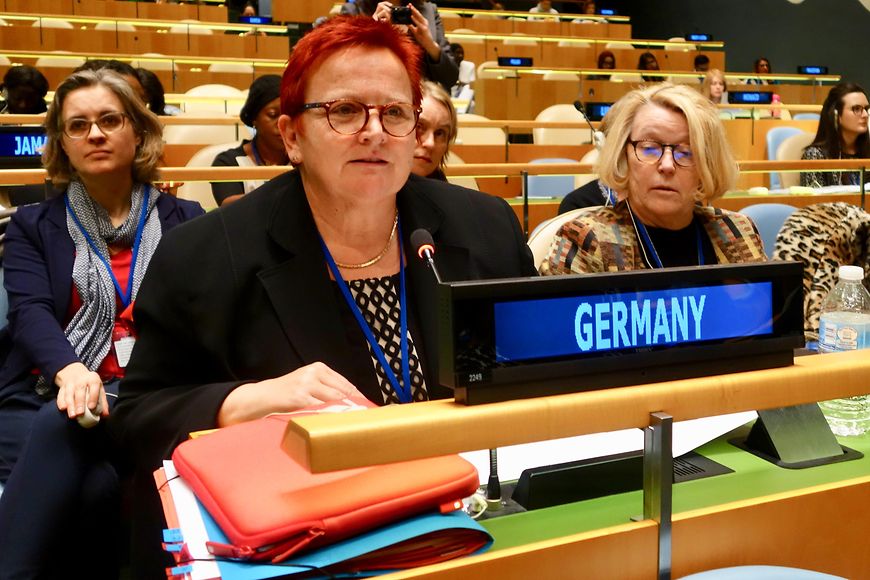
Germany aligns itself with the European Union’s statement.
Figures from around the world have been repeatedly cited over the past few days. In Germany, 90 % is classified as rural, inhabited by more than half of Germany’s population. There is a gap between rural and urban life in Germany, too. There are many areas in which rural women find life more difficult than women in urban areas. And that’s why equalising living conditions is one of our determined aims.
We welcome that CSW62 puts the spotlight on the situation of rural women. Equal living conditions in urban and rural regions are key drivers for gender equality in all regions. We cannot allow rural areas to be left behind, especially when it comes to infrastructure – the digital infrastructure in particular.
The new German government has, therefore, committed to improving chances for active and equal participation of women in rural areas. We want to empower women economically, focussing on smaller family-run businesses in particular. We are thriving towards a better reconciliation of family and working life and we want to improve living conditions for elderly. In pilot projects we are evaluating on how to improve the help system for women facing domestic violence.
It is in particular in rural regions that we have strong civil-society partners, such as the association of rural women counting more than half a million members across Germany. They advocate rural women and give them a voice. They are actively involved at all political levels despite of the fact that rural interest groups are still largely male-dominated. Empowering women and girls and achieving gender equality are both key to sustainable development in Germany and around the world. That is why Germany passionately takes on its international responsibilities.
Women and girls in rural regions need full access
- to quality education and health services, including those that guarantee sexual and reproductive health and rights,
- to decent work and economic empowerment,
- to landholding, credits as well as financial and productive resources
- and more.
Through our Gender Action Plan in Development Cooperation, we are committed
- to achieving gender equality through the mainstreaming of gender perspectives in all our programms and strategies,
- to strengthening the rights of women and girls through transformative gender-specific programming, and
- to pursuing a strategic dialogue with our partners.
May I share two examples of our development cooperation?
We train small-scale female farmers and entrepreneurs in Benin and in Nigeria. As a consequence, they are turning their economic activities into a more solid business. We also played an active role in developing the Food and Agricultural Organisation’s „Voluntary Guidelines on the Responsible Governance of Tenure of Land“. We support our partner countries in applying the guidelines.
As you can see, we are convinced that the promoting of women’s and girls’ rights is a prerequisite to achieving transformative and long-lasting development that benefits everyone.
Chair, Women and girls in rural regions of the world are actively engaged
- in sustainable farming and enhancing food security,
- in stemming the rural exodus and thus improving the prospects of rural regions,
- and they also are getting increasingly involved at all political level.
Thus they represent and meet the needs of the rural population.
Let’s empower and actively support them!